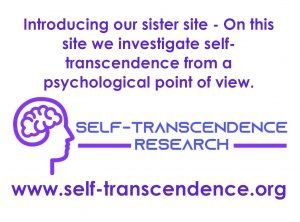Shamanism is very native and tribal in nature. We know the Druids evolved from the Proto-Indo and Indo-European culture, which was known to have shamanic priests, who served as their link between the tribe and the Gods. Shamanism and Druidism are therefore, very much alike in concept and theology. One might say almost impossible to distinguish in their most root form.
The magics, holistics, and herbal medicines said to have been performed by the Ancient Druids and Shaman are very similar in nature. The Celts, however, had very specific words for their secular religious clergy or spiritual leaders and Shaman was not one of them. The term Shaman is most commonly related to those of religious function who were among the lower social class of peoples and/or among the more nomadic outlands.
Druids were a firm part of the noble social order and ruling class, rather than being at the fringes of society. Druids were a part of the political and judicial structure and Shamans were mainly healers and visionaries; however, not so unlike Vates. Druids conducted formal training for many years in a well structured scholastic system. Shamanism is most commonly taught under a single master with only one or very few students.
Many Celtic “otherworld” journeys are told about people who have gone there unwillingly and without any control over the experience. Shamans are masters of controlling there trips into the “otherworld” and always decide when and where they will go.
So, were Druids Shaman? In a sense of the word, yes, very much so. However, Druids were much more involved in literacy, physics, mathematics, and astrology than that of their more primitive brothers, the Shaman.
THE ANCIENT DRUIDS
Druidism, even though being almost undateable has existed into the far reaches of antiquity. Extending far beyond that of written history and the Druids themselves not using a rhetorical system for documeanting their history, it is very difficult to say what their ritual, political, and clerical practices were exactly. Most of the literature we have today is or could be prejudicially written. By taking written history into account, and not looking specifically at religion, we can learn a lot about the Celts and subsequently the Druidic caste.
The ancient Druids were the most learned of all men and women of their time. Druids were physicians, astronomers, mathematicians, musicians, poets, philosophers, legislators, judges, and teachers of spirituality, religion, and education. The Druids were held in such high regard that Kings and other aristocrats or social hierarchy would send their children to them to be taught the ways of Druidism.
In the height of their time the Druids had power over the masses near without equal. It is said that the Druids could walk between two armies waged in war and dispel the hostilities causing them to discontinue the fight. In the matters of learning, religion, and government their word was absolute. The Druids served as the spiritual link between the Celts and the Gods. The Druids taught their philosophy to the Celts, who did not have any organized religion. Their were many pantheons of Gods worshipped by the Celts stemming from tribal, cultural, and geographical roots.
What the Druids did was give order to the many different structures to instill morals, virtues, and ethics. The term “Druidism” is a philosophy and way of life taught by memory from generation to generation. Contrary to popular belief, Druidism was never taught as a system of religion. If it was the Celts as a whole would have been Druids, which we know was not the case.
There are many different concepts of how the Druids worshipped. Whether or not they were Mono, Dual, or Polytheistic. The Druid organizations of today practice all three with respect given to a Higher God, or Creator being (Mono); the reverence of the Earth Mother being a (Dual); and with regard given to the lesser Gods and Goddesses, who serve specific duties in this and the other world, being (Poly). Druidism is a wholly Panentheistic philosophy taught and practiced in many different ways.




